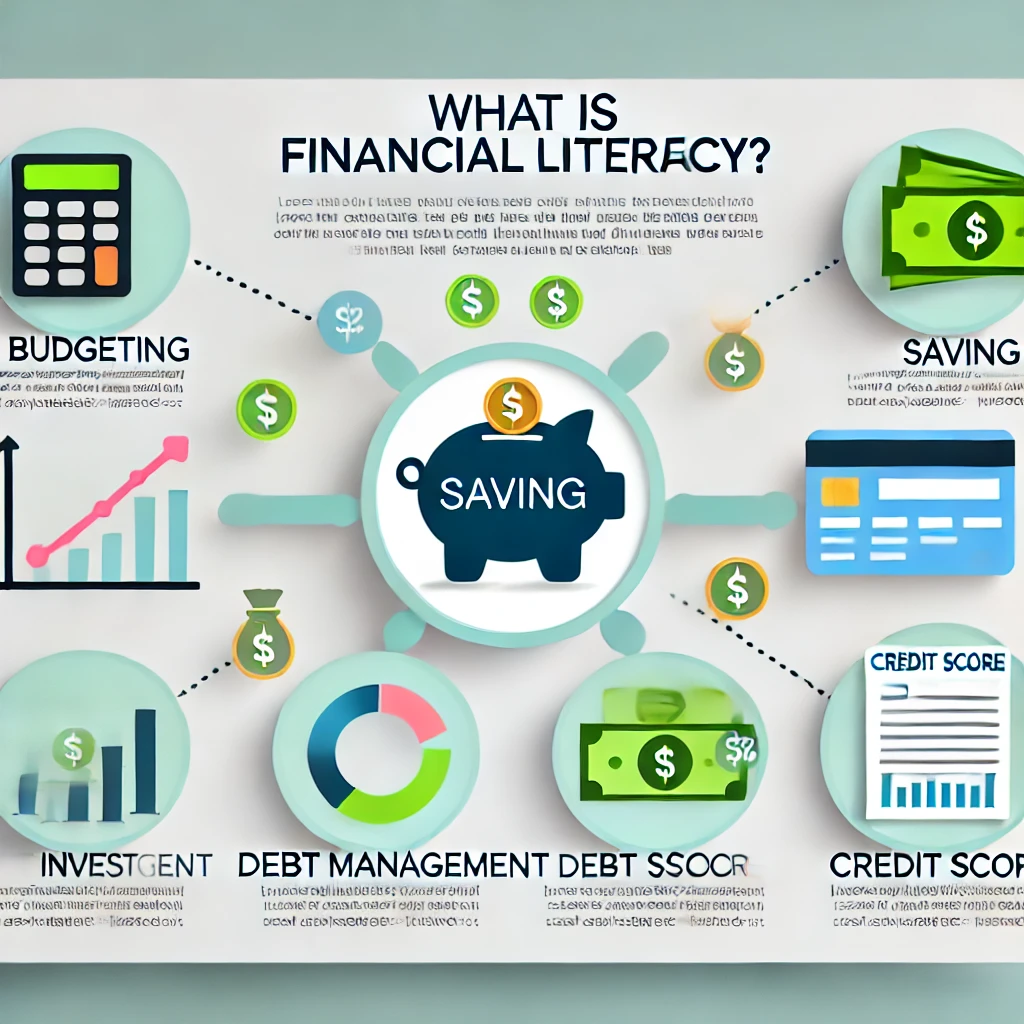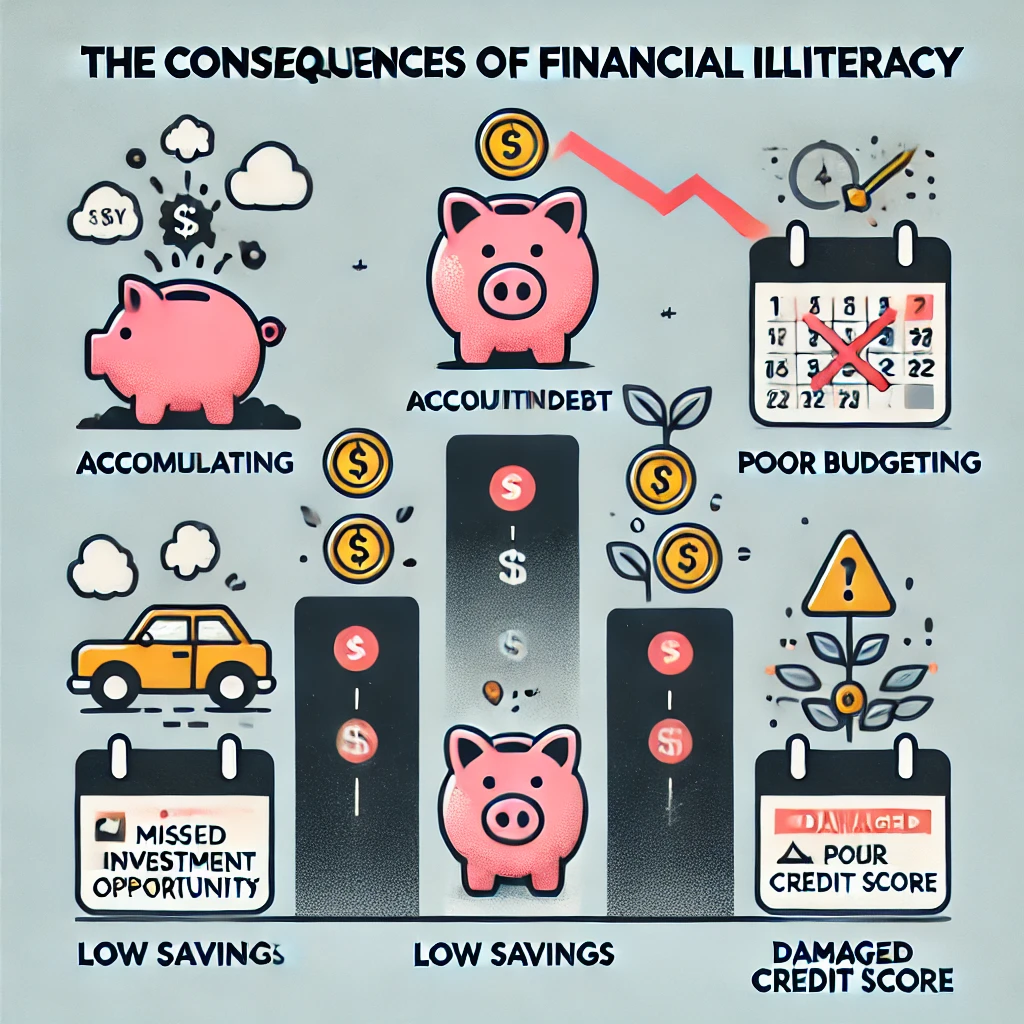Home » Blog » Understanding the Importance of Financial Literacy
Understanding the Importance of Financial Literacy
Introduction
Financial literacy refers to the knowledge and skills needed to make informed decisions about money. In today’s world, managing finances has become more complex. From credit cards and loans to investments and savings, understanding how to manage these aspects of your financial life is crucial. Financial literacy helps individuals make better choices that lead to long-term financial stability and success.
What is Financial Literacy?
At its core, financial literacy is about understanding key financial concepts. These include budgeting, saving, investing, and borrowing. It also involves knowing how financial products like credit cards, loans, and investment accounts work. With financial literacy, individuals can avoid costly mistakes and make informed decisions.
Many people assume managing money is simple. However, without the right knowledge, it’s easy to make poor choices. For example, overspending, accumulating debt, or missing investment opportunities can all stem from a lack of financial literacy.

The Key Components of Financial Literacy
Budgeting
Budgeting is essential for managing your finances. A budget helps you track income and expenses, allowing you to live within your means. It also ensures that you set aside money for future needs and avoid unnecessary debt. A good budget includes all your essential expenses and leaves room for savings.
Saving and Emergency Funds
Saving is a critical part of financial literacy. Without savings, unexpected expenses can quickly lead to financial trouble. Experts recommend setting aside three to six months’ worth of expenses. This emergency fund acts as a safety net during difficult times, helping you avoid relying on credit or loans.
Debt Management
Understanding how to manage debt is another key skill. Debt can be helpful when used responsibly, but it can also become overwhelming. Knowing how interest works, understanding loan terms, and having a plan to pay off debt quickly are all important aspects of financial literacy.
Investing
Financially literate individuals know how to invest wisely. They understand the risks and rewards of different investment types, such as stocks, bonds, and real estate. By learning how to diversify investments, they can grow their wealth and secure their financial future.
Retirement Planning
Planning for retirement is essential. Financially literate individuals understand the importance of starting early. They know the value of saving in accounts like 401(k)s or IRAs and take advantage of compound interest to grow their retirement savings.
Understanding Credit
Credit scores affect many areas of personal finance. A good score makes it easier to borrow money or secure a loan. Financial literacy includes knowing how credit scores are calculated and how to improve them. Practices such as paying bills on time and keeping credit card balances low can maintain or boost your credit score.
The Consequences of Financial Illiteracy
Financial illiteracy, or the lack of understanding of basic financial concepts, can have serious consequences. Many people who are financially illiterate struggle with managing their money, often living paycheck to paycheck, even if they have a decent income. Without proper knowledge of budgeting, saving, and debt management, individuals can easily fall into a cycle of debt, where they borrow more money to cover previous debts, leading to high interest payments and a diminishing ability to save.
Moreover, financially illiterate individuals may miss out on investment opportunities because they either don’t understand how investments work or are too afraid of making mistakes. As a result, they may not accumulate enough wealth for long-term goals, such as buying a home or retiring comfortably. In the worst cases, financial illiteracy can lead to bankruptcy, foreclosure, or other severe financial hardships.

How to Improve Financial Literacy
improving financial literacy is a lifelong journey that requires both education and practical application. Here are some effective ways to become more financially literate:
- Educate Yourself
There are countless resources available, including books, blogs, online courses, and financial news outlets that provide valuable insights into personal finance. Topics like investing, budgeting, and debt management are covered extensively in many accessible formats. - Seek Professional Advice
If managing your finances feels overwhelming, consider consulting a financial advisor. Advisors can help you create a personalized financial plan that aligns with your goals and risk tolerance. They can also provide guidance on complex topics, such as tax planning or estate management. - Use Financial Tools
There are various apps and tools designed to help individuals manage their finances more effectively. Budgeting apps, retirement calculators, and investment platforms can simplify the process of tracking and growing your wealth. - Practice Good Financial Habits
Building financial literacy is not just about learning concepts but also about applying them in real life. Start by creating a budget, setting up automatic savings transfers, and reviewing your credit report regularly. Over time, these small actions can lead to significant financial improvement.
Conclusion
Financial literacy is an essential life skill that empowers individuals to make smart, informed decisions about their money. From budgeting and saving to investing and debt management, understanding how to effectively manage personal finances can lead to greater financial security, less stress, and a more prosperous future. In an era where financial products and services are more complex than ever, financial literacy offers a roadmap for navigating the challenges of modern personal finance. By taking the time to educate yourself and develop strong financial habits, you can take control of your financial future and achieve long-term success.


